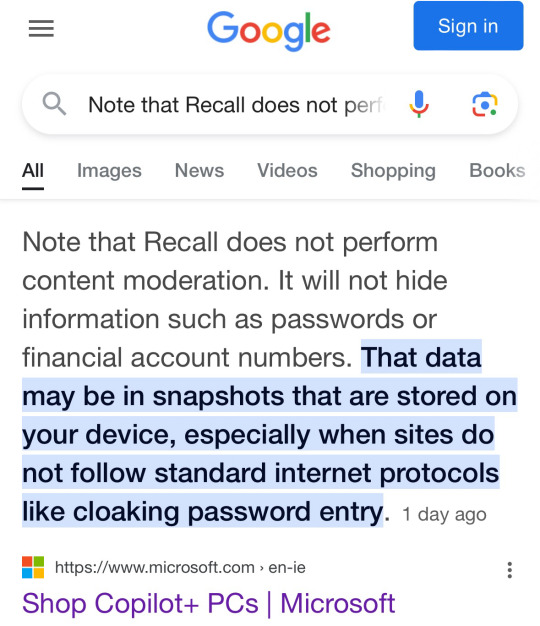I'm a visual artist and a fanfiction writer. The banner was made by Wolf-Chalk, and the icon by RushklySolen on DeviantArt.
Last active 2 hours ago
Don't wanna be here? Send us removal request.
Text
watch out lads i’m about to try to drrrraaaaaaaaaw somethin
78K notes
·
View notes
Note
idk how to word this properly but wrt the fanfic thing you reblogged earlier. Why do fanfic writers have such different expectations than any other content hosting platform?
Like lets take youtube as a point of comparison, Engagement like comments and likes largely exists to boost the works place in algorithm, thats why youtubers put in calls to action and other engament bait. Few with decent reach even read the comments and the audience shouldnt try to develop any weird parasocial relationship with the youtuber. Fanfic authors ask for likes (kudos, because the websites gotta use nonstandard language for some reason) and comments despite them not having any impact on an algorithm, and seem to want the audience to try and develop a relationship with the author based on tumblr posts like that one.
Why the radical difference in behaviour away from the norm? And honestly with all the (usually) metaphorical blood spilled online about parasociality why are authors really surprised that the audience tries to keep their distance as is best practice with any other content producer?
okay I am going to answer this as kindly and as calmly as I can and try to assume that you are asking this in good faith. because my friend, the fact that you feel the need to ask is, to me, The Problem.
[this is, for the record, in response to this post]
fanfiction writers are not *posting content.* (I also have reservations about engaging with the term "content producer" or "content creator" but let's put that aside for now, I'll circle back to it.) you say "they seem to want the audience to try and develop a relationship with the author" as though it is strange, off-putting, and incomprehensible to you, when in fact that is the point of writing fanfiction. it is a way of participating in fandom. it is a way of building community and exchanging ideas and becoming closer with people.
if authors wanted to solely ~generate content~ that would get them attention (?? to what end, the dynamic you have described seems to equate algorithmic supremacy as winning for winning's sake, as though all anyone wants to do is BUILD an audience without ENGAGING with them, which I cannot fathom but let's pretend for a moment that is, in fact, true) then like. if that were the case why on earth would they choose a medium in which they categorically cannot succeed and profit, because it isn't their IP?
you are equating two things that are not at all the same thing. to the degree that parasocial relationships are to be avoided, and "that person is not trying to be your friend they are trying to entertain you, please respect their boundaries" is a real dynamic -- which it is!! -- like. you have to understand that the reason that is true for the people of whom it is true is because it is their JOB. they are storytellers by profession, and they are either through direct payment, or sponsorship, or advertising, or through some other means, profiting off of your attention. i don't say this to be dismissive, many wonderful artists and actors and comedians and any number of a thousand things that i enjoy very much go this route but they do so as a *career choice.* and so when you violate the public/private boundary with them, you are presuming to know a Person rather than their Worksona. the people who work at Dropout or who stream their actual play tabletop games or who broadcast on TikTok or YouTube are inviting me to feel like i know them to the degree to which that helps them succeed in their medium and at their craft, but there MUST be a mutual understanding that that's a feeling, not a fact.
however.
a fanfiction writer is not an influencer, not a professional, and is not looking to garner "success." there is no share of audience we are trying to gain for gain's sake, because we are not competition with one another, because there is nothing to win other than the pleasure of each other's company. we are doing this for no other reason than the love of the game; because we have things we want desperately to say about these worlds, these characters, these dynamics, and because we *want more than anything to know we are not alone in our thoughts and feelings.* fanfiction is a bid for interaction, engagement, attention, and consideration. it is not meant to be consumed and then moved on from because we are NOT paid for our work, nor do we want to be. the reward we seek is "attention," but attention as in CONVERSATION, not attention as in clicks. we are not IN this for profit, or for number-go-up. there is no such thing: legally there cannot be. we are in this because we want to be seen and known.
like. please understand. i am now married to someone i met because of mutual comments on fanfiction. our close friend and roommate, with whom i have cohabitated for over a decade now, is someone I met because of mutual comments on fanfiction and livejournal posts. that is my household. beyond my household, the vast majority of my closest personal friends are people with whom I built relationships in this way.
you ask why fanfiction writers want THIS and not "the norm," but the idea of everything being built to cater to an algorithm to continue to build clout, as though the only method of reaching people is Distant Overlord Creator and Passive Receptive Audience being "the norm" is EXTREMELY NEW. this is not how it has always been!! please think of the writers of zines in a pre-internet fandom, using paper and glue and xerox to try and meet like-minded people in a world that was designed for you to only ever meet people in person, by happenstance, in your own hometown. imagine the writers of the early internet, building webrings from scratch to CREATE a community to find each other, despite distance. imagine livejournal groups, forums, and -- yes, indeed, of course -- comment threads IN STORIES -- as places where people go to *converse.* in the past, we had an entire Type Of Guy that everyone knew about, the BNF ("Big Name Fan") whose existence had to be described via meme because it was SO DIFFERENT THAN THE NORM. treating fellow fans like celebrities or people too cool for the regular kids to know was an OUTLIER, and one commonly understood to lead to toxicity.
in the past, I have likened writing fanfiction to echolocation. i am not screaming because I like hearing the sound of my own voice, though i can and do find my voice beautiful. i am screaming so that the vibrations can bounce back to me and show me the world. the purpose is in the feedback. otherwise it is just noise.
does this make any sense? can you see, when i describe it that way, why an ask like yours makes me feel despair, because it makes us all sound so horribly separate from one another?
perhaps I will try another metaphor:
a professional chef who runs a restaurant will not have her feelings hurt if you never fight your way into the kitchen to personally tell her how much you enjoyed the meal. that would, indeed, violate a boundary. professional kitchens are a place of work, and you have already showed her you enjoyed the meal by paying for it, or by perhaps spreading your enjoyment by word of mouth to your friends so they, too, can have good meals. you show your appreciation by continuing to come back. if a bunch of people sitting around randomly happen to have a conversation about how much they love the food, it wouldn't hurt that chef's feelings to not be included in the conversation. however: EVEN IN THIS INSTANCE, it is ADVISABLE AND APPROPRIATE to leave a good review! you might post about how much you like this restaurant on Yelp, and it would probably make the chef feel great to see those positive comments. but the chef doesn't NEED them, because the chef is, again, *also being paid to cook.* that's why she started the restaurant, to be paid to cook!
i am not being paid to cook.
i am at home in my own kitchen, making things for a community potluck where i hope everyone will bring something we can all enjoy together. some people at the potluck are better bakers, some better cooks; some can't cook at all but are great at logistics and make sure there's enough napkins for everyone; some people come just to enjoy the food, because that's what the party is for. and if I, as this enthusiast chef who made something from my heart for this reason alone, learned after the fact that a bunch of people got together in the parking lot to rave about my dish but no one of them had ever bothered to tell me while I sat alone at my table all night, occasionally seeing people come by to pick up a plate but never saying anything to me -- of course that would bother me, because I am not otherwise profiting off the labor I put in. this is not a bid to be paid, because if someone WERE to say "hey, great cake!! here's five bucks for a slice" i would say no, friend, that is not the point and give them the money back. i'm not trying to Get Mine. I am in it to see the look on your face. I'm in it so you can tell me what about it moved you, so that I can say back what moved me to make it in the first place. so we can TALK about it.
because what happened in the first place is this: one time I had a cake whose sweetness, richness, flavor, intensity, and composition moved me so much that I *taught myself to bake.* so I could see how much vanilla and sugar was too much, so I could learn how to make things rise instead of fall flat, so I could even better appreciate the original cake by seeing for myself the effort and talent and inspiration that goes into making one even half as good.
learning to do so is a satisfying accomplishment in and of itself, yes.
but I also did it because at the end of the day we should EAT the cake. and it's a lonely thing, to eat alone when a meal was always designed and intended to be shared.
so, to answer your last question: i'm not surprised, i'm just sad. because somehow two things that were never meant to be seen as the same have been labeled "content," and thus identical. and it diminishes both the things that ARE intended to be paid for AND the things that are not, because it removes any sense of intimacy or meaning from the work.
i hope you know i'm not mad at you for asking. but i'm frustrated we've come to live in a world where the question needs to be asked, because the answers are no longer intuitively obvious because we're so siloed.
6K notes
·
View notes
Text
So, two things. First, after watching Sonic 3 again, I found a new interpretation of this image

It might just be me, but he looks like a little puppy trying to seem intimidating, but just kinda looks adorable for it.
But then I showed it to my sisters, telling them to "look at him" (and not elaborating further, to test if they might notice the same thing without me directly telling, y'know).
And...... And one of them....
She compared it to this

And I'm wheezing-
13 notes
·
View notes
Text
Literal definition of spyware:

Also From Microsoft’s own FAQ: "Note that Recall does not perform content moderation. It will not hide information such as passwords or financial account numbers. 🤡

249K notes
·
View notes
Text
Even if you're not a Christian, this is solid advice to follow. Many people say things to intentionally get a rise out of others, while some look for something to get offended at for no logical reason. Fighting fire with fire in these situations does not help make it better. Instead, it makes it much worse. If you can't think of anything polite to say after a moment, there are two options: 1) take more time to calm down and think of a response, or 2) leave the conversation, block if you have to, and move on.
Grace in Conflict: Responding instead of Reacting
Conflict is an unavoidable part of life. Whether it's a disagreement with a loved one, tension in the workplace, or a heated conversation online, we all encounter moments where emotions rise and tempers flare. Our natural instinct is often to react—quickly, defensively, and emotionally. But as followers of Christ, we are called to a higher standard: to respond with grace.
Grace doesn't mean being passive or avoiding hard conversations. Rather, it involves embodying the character of Jesus in our approach to a disagreement, characterized by wisdom, humility, patience, and love.
If you are currently dealing with a challenging relationship or finding it difficult to respond without escalating into a heated argument, then you have come to the right place. Let us explore the significance of responding rather than reacting, the importance of grace during conflicts, and how the Holy Spirit empowers us to maintain peace, even in the midst of heightened tensions.
Understanding the Difference: Reacting vs. Responding
We may think that reacting and responding are the same, as both involve addressing a situation. However, the difference lies in the heart behind them along with the outcomes they produce.
Reacting is often immediate, emotional, and driven by impulse. It occurs when we allow our feelings—such as anger, frustration, and fear—to take control. Reactions are typically defensive and can escalate conflict rather than resolve it. A harsh word, a sarcastic remark, or walking away in anger are all examples of reactions that may seem justified in the moment but rarely reflect Christ.
Responding, on the other hand, is a thoughtful and intentional act guided by wisdom. A response involves taking a moment to pause, seeking understanding before speaking. It requires careful word choice and actions rooted in love rather than pride. Responding allows the Holy Spirit to take the lead, rather than allowing our emotions to dictate our actions.
The Bible commands us to respond, not to react; this distinction emphasizes the importance of thoughtfulness and patience in our actions. When we respond, we take the time to reflect on our values and beliefs, allowing us to choose actions that align with our faith and principles.
"Wherefore, my beloved brethren, let every man be swift to hear, slow to speak, slow to wrath: For the wrath of man worketh not the righteousness of God" - James 1:19-20 (KJV)
Why Grace Matters In Conflict
Grace is more than a kind gesture—it's the posture of a heart transformed by the love of Christ. In the midst of conflict, grace is what sets believers apart. Grace is really important to consider when you are involved in an argument, disagreement, or a conflict with another person.
1.Grace Reflects God's Character
Grace reflects the character of Jesus, who was filled with grace and truth. When faced with betrayal, insults, and injustice, He responded with compassion and mercy, embodying the essence of divine love that surpasses human understanding. His demeanor was not one of anger or retribution, but rather one of understanding and forgiveness, encouraging us to look beyond the surface of offenses and recognize the deeper need for love and acceptance.
When we extend grace to others, we mirror His heart and open the door for healing, rather than merely seeking resolution. This act of grace allows relationships to mend and grow stronger. It generates a ripple effect, inspiring others to respond in kind and fostering a community rooted in kindness and mutual respect, ultimately reflecting the kingdom of God on earth.
"And the Word was made flesh, and dwelt among us, (and we behold his glory, the glory as of the only begotten of the Father,) full of grace and truth" - John 1:14 (KJV)
2. It Disarms Hostility And Creates Space For Reconciliation
Grace possesses a remarkable ability to shift the tone of a conflict. When someone expects anger, accusations, or retaliation but is instead met with kindness and patience, it can stop hostility in its tracks. This is because grace does not fuel the fire of conflict; rather, it calms it. It breaks the cycle of defensiveness and invites a more peaceful and honest exchange.
"A soft answer turneth away wrath: but grievous words stir up anger" - Proverbs 15:1 (KJV)
Grace also creates space for reconciliation by removing the need to prove ourselves right and replacing it with restored relationships. It offers forgiveness even when it is not asked for. It leaves room for others to have the opportunity to change, apologize, or explain without the fear of judgment.
Grace will always points us back to Jesus—the One who extended grace to us while we were still sinners.
"But God commendeth his love toward us, in that, while we were yet sinners, Christ died for us" - Romans 5:8 (KJV)
3. Grace Allows Us To Speak Truth Without Sinning
One of the greatest challenges in conflict is speaking the truth without letting anger, pride, or harshness take over. It’s easy to justify cruel words by saying, “I’m just being honest.” But Scripture calls us to something higher: truth in love. That’s where grace comes in.
Grace allows us to speak truth without sinning because it filters our words through humility and compassion. Instead of using truth as a weapon to wound, grace helps us deliver it as a tool to build up.
But speaking the truth in love, may grow up into him in all things, which is the head, even Christ" - Ephesians 4:15 (KJV)
As you can see, Grace doesn’t dilute the truth—it dignifies it.
Grace reminds us that how we say something matters just as much as what we say. When our words are seasoned with grace, they reflect the character of Christ—who never avoided truth but always delivered it with gentleness, patience, and a heart for restoration.
"Let your speech be always with grace, seasoned with salt, that ye may know how ye ought to answer every man" - Colossians 4:6 (KJV)
By walking in grace, we speak truth in a way that invites healing instead of hurt, correction instead of condemnation. Grace guards our tone, our timing, and our intentions, keeping us from sin even when we must address hard things.
The Role of the Holy Spirit in Helping Us Respond
Responding with grace in the heat of conflict is not something we can do in our own strength. Our natural tendency is to defend, retaliate, or shut down. But when we yield to the Holy Spirit, we are empowered to respond in a way that reflects the heart of Christ rather than the emotions of the moment.
God has given us the Holy Spirit to help us to walk in patience, kindness, and self-control. When conflict arises, the Holy Spirit can prompt us to pause, to listen first, and to speak with compassion instead of anger.
"But the fruit of the Spirit is love, joy, peace, long-suffering, gentleness, goodness, faith, Meekness, temperance: against such there is no law" - Galatians 5:22-23 (KJV)
When we make space for the Holy Spirit—through prayer, stillness, and sensitivity to His leading—we respond from a place of spiritual strength rather than emotional impulse. He transforms our reactions into responses that heal, build up, and reflect the grace that God has shown us.
How to Respond with Grace
Responding with grace doesn’t come naturally—it’s a learned posture, shaped by time with God and the work of the Holy Spirit in our hearts. But the good news is that with intentional steps and spiritual maturity, we can grow in our ability to respond in a way that honors God and brings peace to tense situations.
Here are some practical steps to respond with grace:
1. Pause Before You Speak
Grace starts with self-control. When emotions rise, take a moment to breathe and pray, allowing yourself to reconnect with a sense of calm and purpose. Even a short pause, just a brief moment of stillness, allows space for the Holy Spirit to guide your words and calm your heart, reminding you of the importance of patience and understanding in your interactions.
"The heart of the righteous studieth to answer: but the mouth of the wicked poureth out evil things" - Proverbs 15:28 (KJV)
2. Listen to Understand, Not to Defend
Listening with a genuine desire to understand the other person disarms defensiveness and demonstrates humility. It fosters a safe space for open dialogue, allowing both parties to express their thoughts and feelings without fear of judgment.
Grace is not merely about responding to and defending ourselves. It involves genuinely listening to what the other person has to say. By doing so, we invite understanding and collaboration, rather than confrontation, paving the way for constructive conversations that can lead to mutual growth and resolution.
3. Choose Words Carefully
In case you didn't know, words CAN hurt people. Whether we speak carelessly or with intent, our words can affect others in ways we may not fully understand. The impact of our words can linger long after they are spoken, shaping feelings and perceptions that may lead to misunderstandings or deepen wounds. In contrast, grace-filled words are gentle, truthful, and respectful, fostering understanding and connection between individuals. They have the power to uplift, inspire, and heal, creating a safe space for dialogue and empathy.
Sometimes, it's not only what you say but also how and when you say it that truly matters in effective communication. Avoid sarcasm, accusations, and harsh tones, as these can lead to misunderstandings and hurt feelings. Instead, strive to communicate with empathy and kindness, recognizing the power of your words.
Ask yourself: “Will my words build up or tear down?” By taking a moment to reflect on this question, you can ensure that your conversations promote positivity, nurture relationships, and create an atmosphere of trust and support.
"Let no corrupt communication proceed out of your mouth, but that which is good to the use of edifying, that it may minister grace unto the hearers" - Ephesians 4:29 (KJV)
4. Stay Rooted in Love
Grace doesn’t mean avoiding the truth; rather, it involves speaking the truth with love, even when it feels uncomfortable or challenging. It is about embracing honesty while being mindful of the feelings of others, thereby fostering an environment where healing can take place
Stay anchored in your identity in Christ, remembering that you are called to reflect His love and compassion in every interaction. As you navigate difficult conversations, keep in mind that the ultimate goal is restoration, not retaliation. Aim to mend relationships and bring about understanding rather than deepen divides. Let your words serve as a source of encouragement and hope, guiding others toward a path of reconciliation and grace.
5. Forgive Freely
Grace always makes room for forgiveness, even if the other person isn’t ready to apologize. This willingness to forgive is not only a gift to others but also a profound act of self-care that nurtures one’s inner peace. Extending forgiveness softens your heart and invites peace into the situation, creating a space where healing can begin.
Grace provides an opportunity for understanding, acknowledging the flaws in both ourselves and others, and recognizing that holding onto anger only poisons our own spirit. If you would like to learn more about cultivating a forgiving spirit, I recommend checking out my blog post on the importance of forgiving others over having a bitter heart.
"Forbearing one another, and forgiving one another, if any man have quarrel against any: even as Christ forgave you, so also do ye" - Colossians 3:13 (KJV)
6. Set Healthy Boundaries
Grace doesn't automatically mean becoming a doormat. In fact, exercising grace often requires greater strength and self-awareness. You are going to establish boundaries when discussing sensitive topics with someone or when addressing how the other person is responding to you.
It is essential to establish clear boundaries that honor your feelings and protect your emotional well-being. By being upfront about which topics are sensitive for you and how certain responses affect your interactions, you can foster healthier conversations. This approach not only reflects your inner strength but also encourages mutual respect in your relationships, allowing for open dialogue without compromising your values or feelings.
Conclusion
Conflict is never easy, but it presents an opportunity—an opportunity for growth, to reflect Christ, and to respond in a way that brings peace rather than division. We’re not called to avoid conflict; instead, we are called to glorify God through our responses by choosing to engage thoughtfully rather than react impulsively. We respond with grace by speaking with wisdom, listening humbly, and forgiving courageously. The good news is that we do not have to do it alone. God has given us His Spirit to help us walk in love, patience, and self-control—even during the most difficult moments.
So, my friend, I encourage you to take a moment to reflect: How have you responded in your recent conflicts? Were your words shaped by grace, or by frustration and impulse? Don’t be discouraged—grace is a journey, and God is patient with us as we grow.
I challenge you to present those moments of tension before God. Ask the Holy Spirit to reveal where your heart needs to soften, where forgiveness is necessary, and how you can respond differently in the future. Pray for His strength to pause, listen, and speak with love—even when it’s hard.
Let your next conflict become an opportunity to glorify God—not by striving for perfection, but by embracing a willing heart. Grace isn’t just something we receive; it is also something we are called to extend to others. With the help of the Holy Spirit, you can become a vessel of peace in a world that desperately needs it.
Source: Grace in Conflict: Responding instead of Reacting
129 notes
·
View notes
Text


kind of following Sonic's birthday, none of these boys are normal lol
13K notes
·
View notes
Text

the two underdog couples I've decided to attach to XD
finally thought of a potential older blaze look too for the happy timeline, didn't want to deviate too much from her original look

2K notes
·
View notes
Text
*blows a kiss to every disabled member of the lgbt community*
94K notes
·
View notes
Text
Silver's salty lol


5K notes
·
View notes
Text
Rival Dialog Switch Ups




That's really cool that apparently the dialog changes based on who is playable, they also can change depending on the stage too. We are going to get a ton of fun different interactions from this Rivals system evidently. Especially since it was confirmed all [the Sonic characters at least] can rival one another. Sega is cooking.

22 notes
·
View notes
Text
Had this sitting on the backburner for awhile-ish now. I meant to give it the full animation treatment like my last project but between art burn out and my chronic pain, just ain't happening rn. Maybe at a later date or if people want to help me finish it, I'll eventually go back to properly render/clean up this project.
So! Here is what I had made of it, its rough but I wanted to try some new things: primarily lip-syncing. Huge thanks again to my buddy @xxtc-96xx for helping me with learning lip-syncing and timing.
youtube
38 notes
·
View notes
Text
So Summer Games Fest has been pretty good so far…

#SEGA#snapcube#sega sonic#sonic fandub#sonic riders#real time fandub#sonic riders fandub#sonic fandom#sonic the hedgehog#sth#sonic racing crossworlds#Hatsune miku#miku Hatsune#Apollo’s gift of prophecy#memes
9K notes
·
View notes
Text
@xxtc-96xx Look what the jerks did to your adopted son!


They fucking killed him.
519 notes
·
View notes
Text
Had this sitting on the backburner for awhile-ish now. I meant to give it the full animation treatment like my last project but between art burn out and my chronic pain, just ain't happening rn. Maybe at a later date or if people want to help me finish it, I'll eventually go back to properly render/clean up this project.
So! Here is what I had made of it, its rough but I wanted to try some new things: primarily lip-syncing. Huge thanks again to my buddy @xxtc-96xx for helping me with learning lip-syncing and timing.
youtube
38 notes
·
View notes






